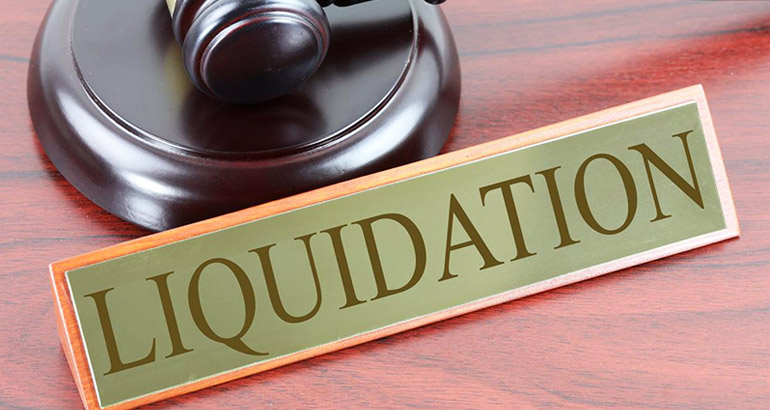More About Company Liquidation
More About Company Liquidation
Blog Article
The Of Company Liquidation
Table of ContentsCompany Liquidation - TruthsCompany Liquidation Can Be Fun For EveryoneThe Ultimate Guide To Company LiquidationHow Company Liquidation can Save You Time, Stress, and Money.Get This Report about Company Liquidation
A liquidator is specifically selected to look after the ending up of a business's affairs in order for it to be shut down typically when the business is going bankrupt. The liquidator is an unbiased 3rd party who manages the sale of business assets in order to pay off any type of outstanding financial obligations.Their duty includes, however is not restricted to: Impartial Movie director: A liquidator is entrusted with serving as an impartial 3rd party to manage the whole business liquidation process. Produce Declaration of Affairs: Liquidators have to produce a comprehensive declaration of affairs record. This document is dispersed to financial institutions, detailing the current economic standing of the company at the time of its liquidation.
After the liquidation of a business, its existence is removed from Companies Home and it stops to be a legal entity. If directors navigated the procedure uncreative, there would be no penalties or personal responsibility for solid financial obligations anticipated. Currently, with a fresh start, supervisors can check out new company possibilities, though professional appointment is advisable.
Not known Details About Company Liquidation
If even more than 90% of all business shareholders agree, liquidation can take area on brief notification within 7 days, the minimal statutory notice for creditors. Typically, the larger the liquidation and the more possessions and funding the service has, the longer the process will certainly take. 'Do I need to pay to liquidate my company?', the response will certainly rely on whether or not your service has any type of properties leftover when selling off.

We understand that no two business are the exact same, which is why we will take the time to learn more about your service so we can suggest the finest program of activity for you. We just operate in your benefits, so you can be entirely positive in the solution we offer.
The smart Trick of Company Liquidation That Nobody is Talking About
In the UK, there is an established process to shutting down or reorganizing a minimal firm, whether it is solvent or our website financially troubled. This procedure is called liquidation and can only be handled by an accredited bankruptcy specialist (IP) according to the Bankruptcy Act 1986. There are 4 major sorts of firm liquidation process: Lenders' Volunteer Liquidation (CVL); Obligatory liquidation; Management; and Members' Voluntary Liquidation (MVL).

In these circumstances, it is necessary that the firm ceases trading; if business remains to trade, the supervisors could be held directly responsible and it might lead to the bankruptcy expert reporting wrongful trading, called misfeasance, which may bring about lawsuit. The directors select a bankruptcy professional and once this has been agreed and verified, there is a conference with the investors.
Obviously, if there are no shareholders, this action of the procedure is not needed (Company Liquidation). The IP takes control of the business and begins the business liquidation process. The supervisors are no more associated with what happens, consisting of the sale of the firm's assets. However, if the directors desire any one of the properties, they can inform the IP.
7 Easy Facts About Company Liquidation Explained
The main distinction is that the firm's financial institutions applied to the court for a winding up order which forces the financially troubled company right into a liquidation process. Financial institutions take this action as a last hotel since they have not gotten repayment with other types of negotiation. The court assigns an insolvency expert, also recognized as an official receiver, to conduct the required business liquidation procedure.
This type of firm liquidation is not voluntary and directors' conduct is reported to the UK's Assistant of State once the liquidation procedure has actually been completed. Any kind of director that falls short to coordinate with the IP or has actually been entailed in director misbehavior, or an illegal act, might result in serious consequences.
It why not look here is used as a means to shield the firm from any kind of lawsuit by its financial institutions. The supervisors of the company agree to make regular repayments to settle their financial obligations over an amount of time. The selected administrator handles the voluntary management procedure, and obtains the settlements which they then distribute to creditors these details according to the agreed quantities.
The Best Strategy To Use For Company Liquidation
This gives the business with time to establish a plan going forward to rescue the business and stay clear of liquidation. Nevertheless, at this point, directors hand control of the business over to the designated administrator. If a company is solvent however the supervisors and shareholders wish to shut business, a Members Voluntary Liquidation is the right choice.
The firm liquidation procedure is handled by a liquidator assigned by the directors and shareholders of the business and they need to authorize a statement that there are no financial institutions staying. The liquidation process for an MVL is comparable to that of a CVL because possessions are become aware yet the proceeds are distributed to the supervisors and the shareholders of the company after the liquidator's costs have actually been paid.
Report this page